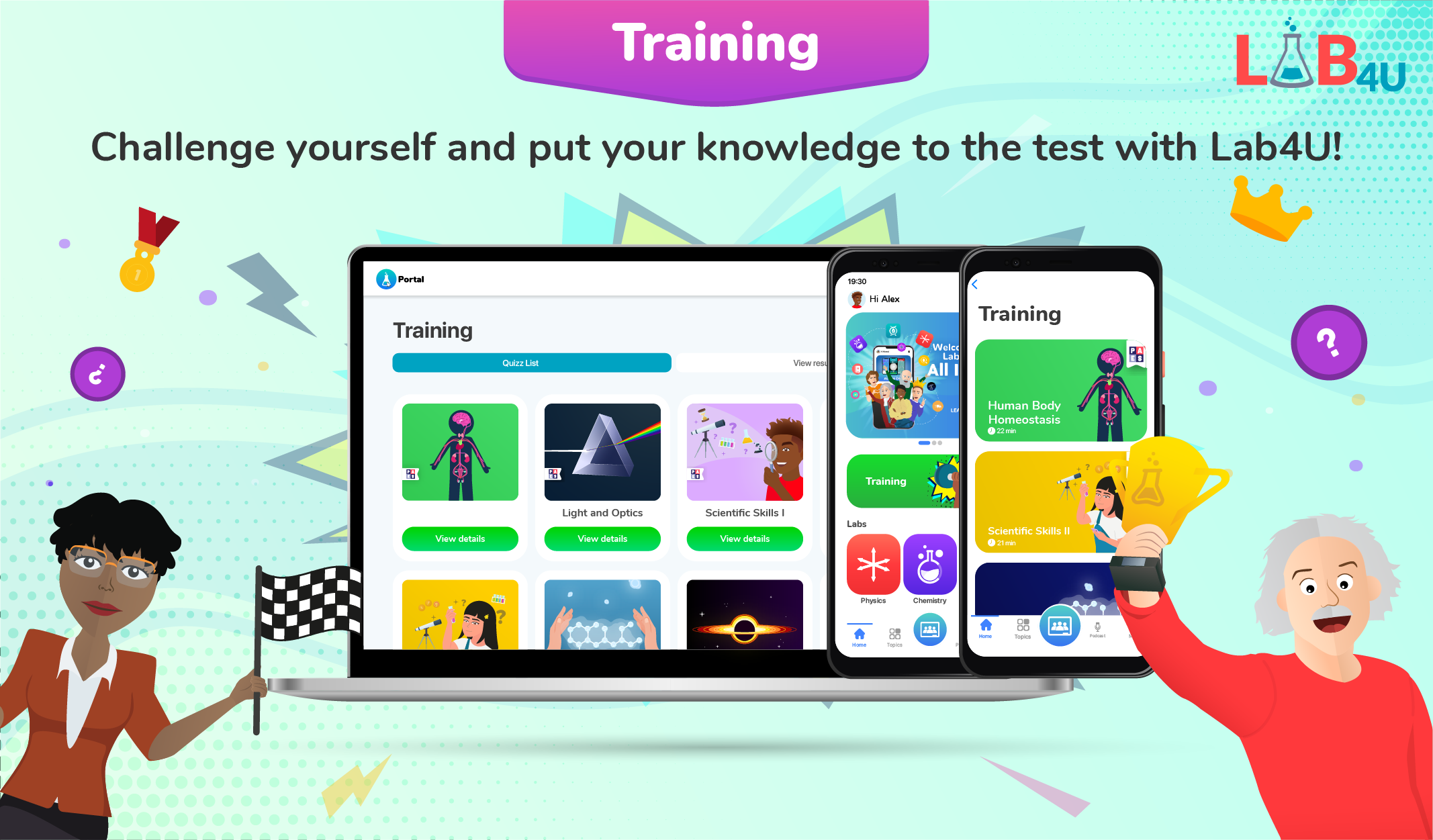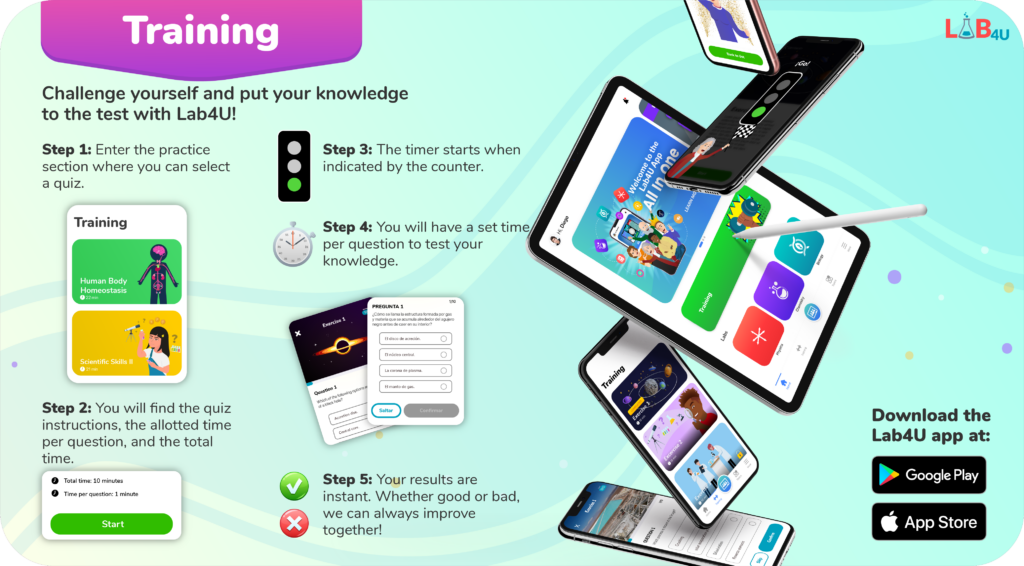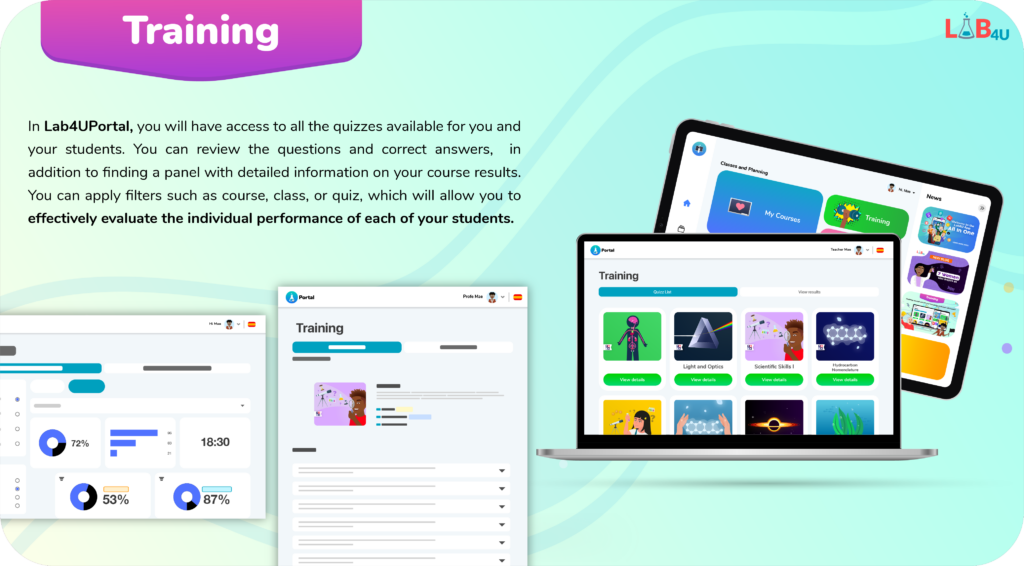
Mastering Scientific Knowledge: The Importance of Exercise
By Lab4U Team


By Lab4U Team
At Lab4U, we’ve launched our new Exercise feature. Test your knowledge with quizzes as many times as you want, and aspire to be the next Marie Curie or Albert Einstein.
Learning requires dedication and effective strategies. One of the best strategies for understanding scientific concepts and facts is constant practice. Here are some benefits:


Bibliography

